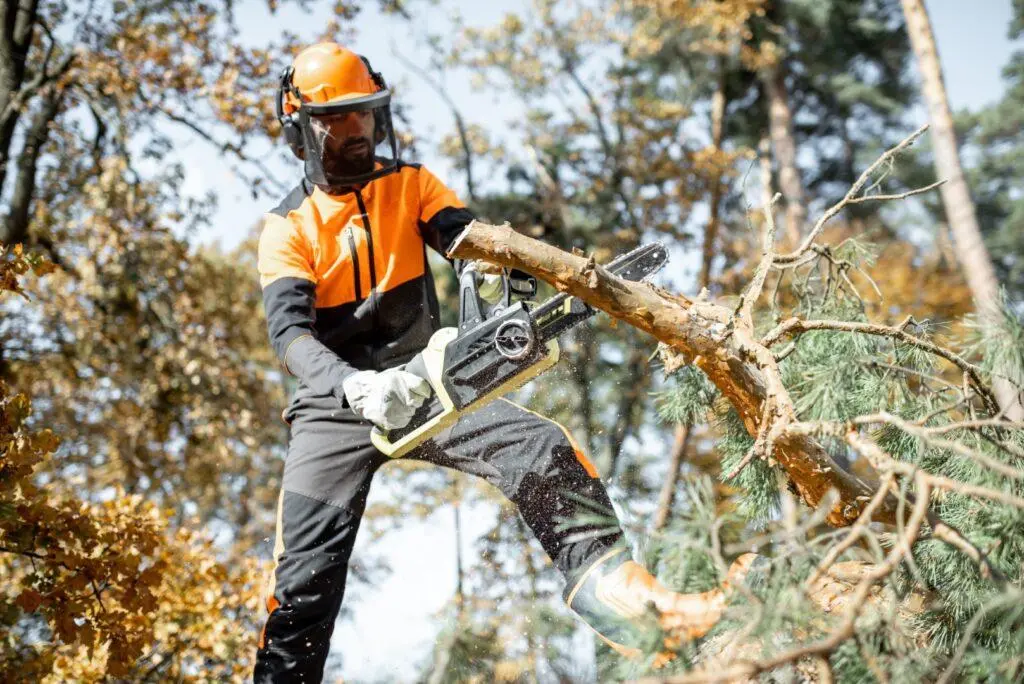A tree specialist, often referred to as an arborist, is a trained professional responsible for the care, maintenance, and preservation of trees. Their primary role involves assessing the health of trees, diagnosing diseases and pest infestations, and implementing appropriate treatments. Additionally, tree specialists provide recommendations for tree pruning, trimming, and removal when necessary. They may also offer guidance on tree planting, landscaping, and proper tree care practices to homeowners, businesses, and municipalities.
What is a Tree Specialist?
Skills and Qualifications Required
To become a tree specialist, individuals need a combination of specialized skills and qualifications. These include knowledge of tree biology, identification of tree species, understanding of soil composition, and proficiency in tree climbing and rigging techniques. Strong problem-solving abilities and excellent communication skills are also essential, as tree specialists often interact with clients and collaborate with other professionals in the landscaping and forestry industries.
Types of Tree Specialists
Tree specialists may specialize in various areas within the field of arboriculture. Some focus on urban forestry, where they work to maintain the health and vitality of trees in urban environments. Others specialize in tree risk assessment, conducting thorough inspections to identify potential hazards posed by trees. Additionally, there are tree specialists who specialize in tree preservation, advocating for the protection of trees during construction and development projects.
Why Become a Tree Specialist?
Passion for Nature and Trees
Many individuals are drawn to the profession of tree specialist due to their passion for nature and trees. These individuals find fulfillment in working outdoors, surrounded by the beauty of trees, and are committed to preserving the natural environment for future generations. Becoming a tree specialist allows them to combine their love for the outdoors with a rewarding career that makes a positive impact on the environment.
Contribution to Environmental Conservation
Tree specialists play a crucial role in environmental conservation efforts by maintaining the health and vitality of trees. Trees not only provide essential habitat for wildlife but also help mitigate climate change by absorbing carbon dioxide and releasing oxygen. By caring for trees and promoting their growth, tree specialists contribute to the overall health of ecosystems and help combat deforestation and urbanization.
Career Opportunities and Growth
The field of arboriculture offers diverse career opportunities and room for professional growth. Tree specialists can pursue various career paths, including working for landscaping companies, municipal arborist departments, tree care services, or starting their own tree care business. With the increasing awareness of the importance of tree preservation and environmental sustainability, the demand for skilled tree specialists is expected to grow, providing ample opportunities for career advancement and specialization.
How to Become a Tree Specialist
Education and Training
Becoming a tree specialist typically requires a combination of formal education and hands-on training. Many tree specialists hold degrees in forestry, horticulture, or arboriculture from accredited institutions. These programs provide students with a solid foundation in tree biology, plant pathology, soil science, and arboricultural practices. Additionally, obtaining certification from professional organizations such as the International Society of Arboriculture (ISA) demonstrates a commitment to excellence and enhances career prospects.
Hands-On Experience
Hands-on experience is essential for aspiring tree specialists to develop practical skills and expertise in tree care and maintenance. Internships, apprenticeships, and on-the-job training opportunities allow individuals to gain valuable experience working under the guidance of experienced arborists. Through hands-on training, aspiring tree specialists learn essential skills such as tree climbing, pruning techniques, and safe use of equipment, preparing them for the challenges of the profession.
Continuing Education and Professional Development
The field of arboriculture is constantly evolving, with new technologies and techniques emerging to improve tree care practices. As such, continuing education and professional development are essential for tree specialists to stay updated on the latest advancements in the field. Attending workshops, seminars, and conferences, and pursuing advanced certifications demonstrates a commitment to ongoing learning and ensures that tree specialists remain knowledgeable and skilled in their profession.
Types of Work Tree Specialists Do
Tree Care and Maintenance
One of the primary responsibilities of Tree specialist is tree care and maintenance. This includes pruning, trimming, and shaping trees to promote healthy growth and improve their appearance. Tree specialists also conduct regular inspections to identify signs of disease, pest infestation, or structural weakness, and implement appropriate treatments to address these issues.
Diagnosis and Treatment of Tree Diseases
Tree specialists are trained to diagnose and treat various diseases that affect trees. They use their knowledge of plant pathology to identify the cause of symptoms such as leaf discoloration, wilting, or dieback and recommend appropriate treatment measures. This may involve applying fungicides or insecticides, improving soil health, or implementing cultural practices to enhance tree vigor and resilience.
Tree Planting and Landscaping
Tree specialists play a vital role in tree planting and landscaping projects, helping clients select appropriate tree species for their property and ensuring proper planting techniques are followed. They assess site conditions such as soil type, sun exposure, and available space to determine the best location for planting trees. Additionally, tree specialists provide guidance on tree care practices such as watering, mulching, and fertilization to promote successful establishment and growth.
Emergency Response and Storm Damage Cleanup
During severe weather events such as storms or hurricanes, tree specialists are often called upon to respond to emergency situations involving fallen or damaged trees. They work quickly and efficiently to assess the extent of damage, remove fallen trees safely, and restore damaged trees to health. Tree specialists may also provide preventive measures such as tree pruning or cabling to reduce the risk of tree failure during future storms.
Challenges and Rewards of Being a Tree Specialist
Physical Demands and Safety Concerns
Working as a tree specialist can be physically demanding and hazardous, requiring individuals to climb trees, operate heavy equipment, and work at heights. Tree specialists must adhere to strict safety protocols and use personal protective equipment to minimize the risk of accidents or injuries. Despite these challenges, many tree specialists find fulfillment in overcoming obstacles and mastering the skills required to perform their job safely and effectively.
Fulfillment of Helping Trees and Communities
One of the most rewarding aspects of being a tree specialist is the opportunity to make a positive impact on trees and communities. By caring for trees and preserving green spaces, tree specialists contribute to the health and well-being of both urban and natural environments. They help enhance the beauty of neighborhoods, improve air quality, and create habitats for wildlife, leaving a lasting legacy for future generations to enjoy.
Personal and Professional Growth Opportunities
Becoming a tree specialist offers numerous opportunities for personal and professional growth. As individuals gain experience and expertise in the field of arboriculture, they may pursue advanced certifications, specialize in specific areas such as tree risk assessment or urban forestry, or even start their own tree care business. The satisfaction of continuous learning and the ability to positively impact the environment make a career as a tree specialist both fulfilling and rewarding.
Conclusion:
Becoming a tree specialist is not just a career choice but a commitment to preserving nature’s green giants and enhancing the environment for generations to come. With passion, dedication, and the right training, anyone can embark on this fulfilling journey of arboriculture expertise, making a profound impact on trees, communities, and the world. So, if you have a love for nature and a desire to make a difference, consider becoming a tree specialist today.












Срочный вывод из запоя в Петербурге: анонимно и безопасно
вывод из запоя анонимно vivod-iz-zapoya-79.ru .